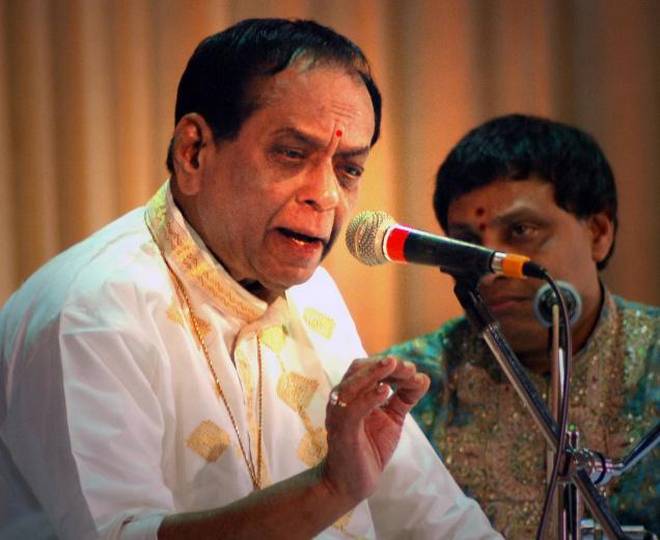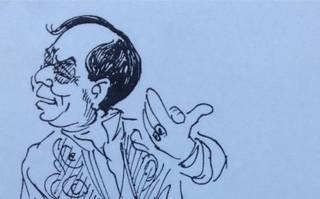31
30
29
28
27
26
25
Balamuralikrishna, maestro of Carnatic music, passes away
Carnatic vocalist, playback singer and composer Mangalamapalli Balamuralikrishna, who burst into the music world as a child prodigy, died on Tuesday. He was 86 and is survived by his wife, three sons and three daughters.
His music appealed to both the connoisseurs and the laymen alike. In classical music, he was able to give “play acting” to the essence of the lyrics in his song. In the film world, “Oru Naal Pothuma”, a ragamalika in Thiruvilayadal, “Chinna Kannan Azhaikiran”, a Reetigowla-based song in the film Kavikuil, “Mounathil Vilayadum Manasatichye” from the film Noolveli and the Abhogi song “Thanga Ratham Vanthathu” from the film Kalai Koil continue to enchant a generation of music lovers.
A native of East Godavari district of the erstwhile Madras Presidency, his father Pattabiramaiah was a musician and his mother Sooryakanthamma was a veena player. He gave his first concert when he was nine and the quality of his music is explained by the fact that All India Radio (AIR), Chennai, included him, a child artist, in the list of A-grade artists.
He was also an accomplished violinist and once accompanied Ariyakudi Ramanuja Iyengar, the pioneer of the modern-day Carnatic concert format.
Balamuralikrishna learnt violin by listening to his father playing the instrument.
“Since my father was against me playing violin, I created my own instrument. Once I summoned courage and played his instrument in his absence. When questioned by my father I admitted and played Bhairavi ata thala varnam. My father was impressed and allowed me to play the instrument,” he had recalled in his biography Sangita Perunkadal, penned by Ranimynthan.
Violin playing came in handy when his voice underwent changes in his teens and could not sing.
“He had a magic voice. He is to Telugu keerthanas what M.M. Dhandapani Desikar was to Tamil music. Since Telugu was his mother tongue, he knew the meaning of Thiyagaraja’s keerthanas and would not maul them,” said clarinet maestro A.K.C. Natarajan, who also learnt many keerthana’s from him.
Actually Balamuralikrishna’s career in film industry began as an actor. He played the role of Narada in the film Bhakta Prahalada on the request of A.V. Meyappa Chettiar. It was a Telugu film and was dubbed in Tamil, Hindi and Kannada and he played the role in other languages also. His first song is also for a Telugu film Sati Savitri.
“S. Varalakshmi was the heroine of the film and she learnt music from Balamuralikrishna. She requested him to render at least one sloka in the movie. But he ended up singing all the songs for the hero A. Nageswara Rao,” recalled Ranimynthan, the biographer of Balamuralikrishna.
When K. Balachander directed Apoorva Ragangal, he told M.S. Viswanthan to compose a song in a rare raga to justify the title of the film. It was Balmuralikrishna who helped him compose the song Athisaya Ragam in raga Mahathi. His other creations are raga Sarvashri, Lavangi, and Sumukham.
He also scored music for the first Sanskrit film Adi Sankarar . He won the national award for best playback singer, music director and classical singer. He was awarded the Sangita Kalanidhi award of the Music Academy. He is also a recipient of France’s Chevalier of the Ordre des Arts et des Lettres.
source: http://www.thehindu.com / The Hindu / Home> News> National / by B. Kolappan / November 23rd, 2016

